Bollywood's gender and ethnic roles (aka, white girls drool over Bolly hunks) and a bit of Superman
This morning, a thirteen year old, after making eye contact told me "I want you to be my girlfriend. Won't have it any other way." I am afraid I couldn't help but crack up as I told him that my husband might object. If he was taller, MUCH older and this was Bollywood, I'd imagine with such an approach he'd go far. But still, considering I could have been the sprog's mother if I started REALLY early, it was kinda flattering and amusing at the same time.
My BSG Baltar/Six fic has hit a writer's block the size of South America. Sigh...
And completely unrelated, I've been thinking about the late trend in Bollywood movies of white women falling for Bollywood heroes, and what it says about cultural expectations.
Bollywood often reminds me of old, classic-era Hollywood. The same love for musicals and outsized melodrama, the same care for glamor, the same reliance on star mystique and power to carry movies, more than any other element of the film. And this is borne out yet again in their approach to interracial relationships. You know, how in old Hollywood movies, this tragic native girl would fall in love with the white hero? Or an exotic Asian woman would love an American? And these stories seldom ended well, with the woman 'other' being either unrequited or too different to fit in, or dying. Because that story couldn't have a happy ending? And how when movies got more progressive in the 1950s, you'd have a movie like Sayonara, where the interracial couple would overcome obstacles and be together. But even in those movies, it's always a man who is white and a woman who is other.
I think it ties in to the patriarchal nature of the culture, any culture really. Women are percieved as vessels of culture, so a woman of other culture falling for you is an indirect proof of the superiority of your culture over hers. And it's proof of the superiority of your men over those of the other race. OTOH, if it's your women going for other culture the reverse is true and is a humiliation and pollution.
Well, it's a fascinating mirror experience to watch Bollywood's approach. I am sure if some white supremacist saw these, he would probably be clutching his head in horror and pulling out his hair.
Because Bollywood has recently been making a variety of movies where white women fall in love with Indian men. And what a fascinating study they are. Here is a sampling (as I cannot claim I've seen every one ever made). I find it very interesting how those portrayals progress, in a very short term, from the pining and unwanted white girl, to Bollywood staple of star-crossed obstacles to something that is viewed matter of factly as any other relationship might be.
Lagaan. I think everything started with Aamir Khan's Lagaan, which is probably the Bollywood movie most known to anyone who is not Bollyholic, seeing that it played in mainstream arthouses, was nominated for an Oscar, and can be found in your local Blockbuster. It's an excellent movie (it was very slow to grow on me, but grow it has) about a lot of things, mainly a peaceful fight against the British in a cricket match, but it also has a white woman falling for our very Indian protagonist. Elizabeth, the sister of the evil British Captain teaches the hero Bhuvan and the other villagers about cricket, and also falls in love with him in the process (who could blame her? Buff and be-earringed, Aamir looks HOT). She fantasizes about him, but her love is unrequited. Bhuvan never really percieves her as a woman and his love is reserved for a village girl Gauri (played by Gracy Singh). Elizabeth actually never marries. I find it interesting that here the White/Indian affair is one-sided (shades of all those movies where the native girl loves from afar), and that the hero of course ends up with the suitable Indian woman. Elizabeth's love proves Bhuvan's cultural superiority, but obviously, she is not worthy to be his partner and sticking to one's culture is best. Elizabeth's love proves the speriority of Indian culture and its men, but also, being of inferior stock, she cannot be rewarded with the love of the hero. It's basically a bit of ego stroking, proving the hero's coolness, something this has been used for in Hollywood movies. Of course, this is a gross simplification. For one, Bhuvan and Elizabeth couldn't have any sort of life together. They are unsuitable together and Gauri and Bhuvan are very suitable, so this is very character and period based. Whatever its subconscious meaning (if any), it's a well-developed story in a well-developed movie. But I find the matter-of-fact assumptions that go into the approach to the triangle fascinating. (Not related but am I the last person to realize that Bhuvan and Gauri have sex in 'O Re Chori'?)
Kisna. The blonde Katherine (played by the gorgeous Antonia Bernath) falls in love and vice versa with Kisna played by Vivek Oberoi. Their love is epicy and mutual, but he picks his tradition over her, and marries his promised fiancee. I find it interesting that in a way this is an intermediate step between Lagaan and something like DJBK. Here, the White woman is percieved as a romantic object, as worthy of the love of the noble hero. She is the real love interest while the Indian fiancee is the one with the one-sided love. But still, it's too different and the lovers cannot be allowed to be together. And the culture really has no place for this outsider. Still, this is miles over such movies like Ghai's earlier Pardes where Whites are percieved as a threat and the White girl is the girlfriend of the bad guy who allows him to go all the way unlike the virginal heroine. Sort of like the nasty men with native mistresses in those silent movies. Only in a mirror reversal.
Dil Jo Bhi Kahey. In this one, Jai and Sophie fall in love. He is Indian and she is the palest white and they are both from Mauritius. Startlingly, they end up married and getting their HEA. It's the only movie on the list who has this (even though it's Jai who goes traditional for a bit to save the feelings of his mother and tries to give Sophie up). Interestingly, while both her father and his mother are against it, his mother is portrayed as a lot more loveable. I do like how the views on these relationships progress.
Virrudh. This movie is largely about a father's fight for justice over his son's death. But still, it's interesting that John Abraham's character, who lives in London, falls in love and maries an English girl, and the parents are OK with it and she does her best to adjust to the culture.
Rang De Basanti. This is my favorite Bollywood movie this year, and is in my Top 10 Bollywood movies, period. And the love story is really not a focus but an organic part of the story which is actually all about political apathy and the desire for change and a group of friends. It's the most natural movie I've seen out of Bollywood. It also has as one of the main characters, an English documentary film-maker Sue (Alice Patten) who develops a relationship with DJ (Aamir Khan. What's with him and the white girls?) This is actually handled in the most realistic matter possible: their personalities match so they are a couple. Her not being Indian is organic part of the story: she is the outsider who sets the ideas clash in motion. And it's integrated beautifully the way it could be in real life: in DJ's initial assumption she doesn't speak Hindi, thus picking some really cheesy lines, and in his last words in the movie. In fact, if Bollywood does more interracial love stories (which it will: India becoming more and more open and globalized), I hope they will use RDB for its model.
And there is the upcoming Marigold with Salman Khan and Ali Larter (though arguably it's not Bollywood), continuing the trend...
I also find the fascination with blondes really interesting. Of the movies I listed, only Elizabeth in Lagaan is dark-haired. The rest are quite blonde and pale. I think here is where Indian preference for fair skin in women (is it a remnant of colonialism? some classist thing? No idea) comes in. I think it's interesting that no interracial love story had a Black or Asian woman involved.
I also have to note the only Bollywood movie I've seen where the genders were reversed. In Mangal Pandey, it's Toby Stephens (yum) as the White officer and Amisha Patel as the Indian widow. (Aamir really seems to like the mixed love stories, doesn't he?)
And because it's bad to have nothing but Bollywood, I bring you pics from the upcoming Superman Returns. The movie will probably bore me, but the boy is hot.
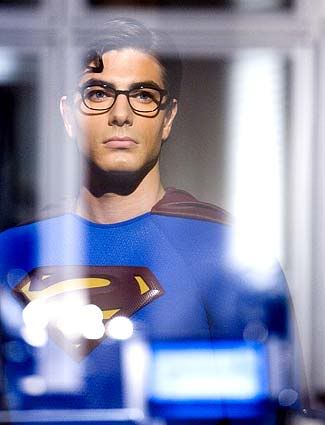
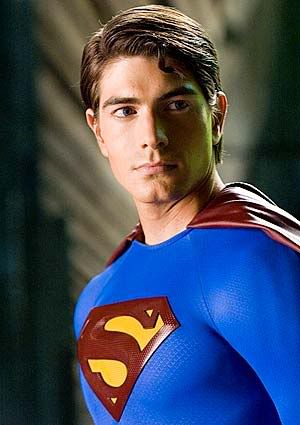

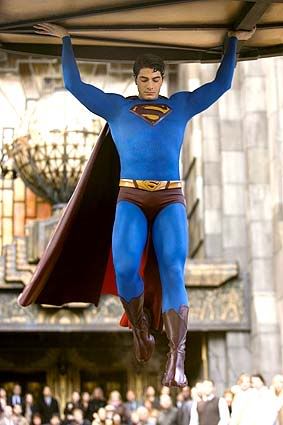
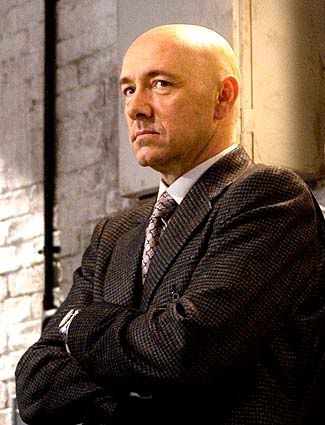
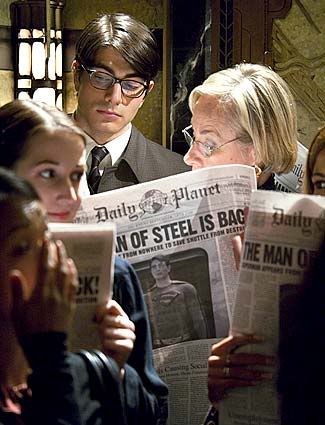

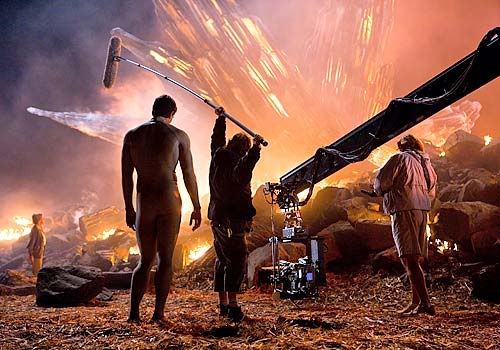
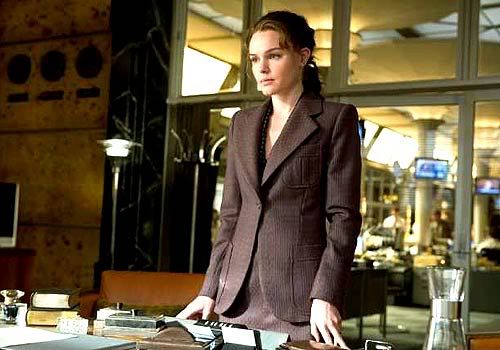
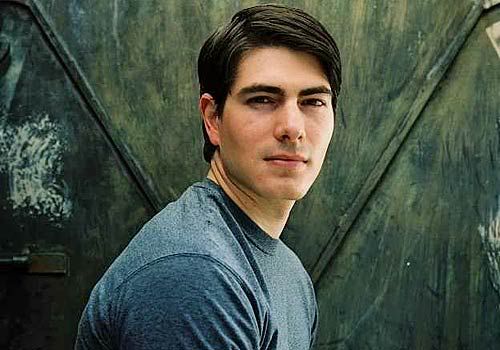
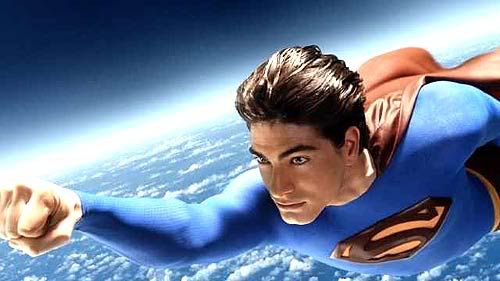
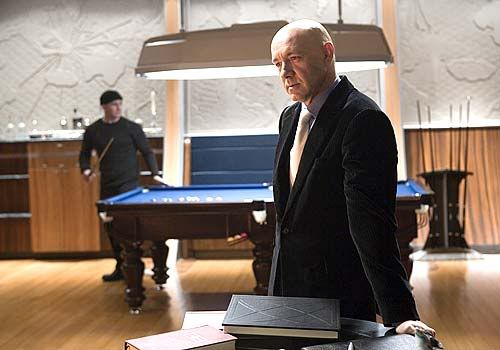
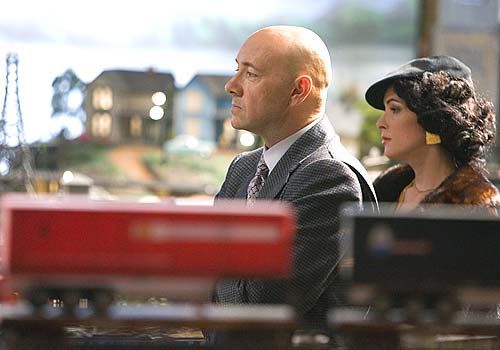
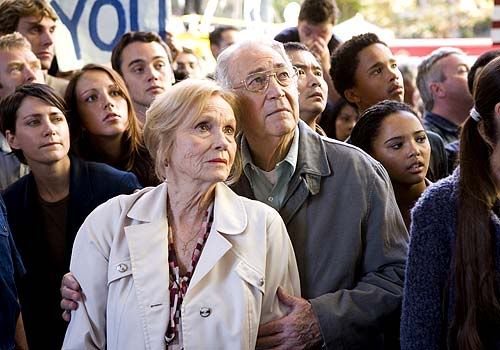
My BSG Baltar/Six fic has hit a writer's block the size of South America. Sigh...
And completely unrelated, I've been thinking about the late trend in Bollywood movies of white women falling for Bollywood heroes, and what it says about cultural expectations.
Bollywood often reminds me of old, classic-era Hollywood. The same love for musicals and outsized melodrama, the same care for glamor, the same reliance on star mystique and power to carry movies, more than any other element of the film. And this is borne out yet again in their approach to interracial relationships. You know, how in old Hollywood movies, this tragic native girl would fall in love with the white hero? Or an exotic Asian woman would love an American? And these stories seldom ended well, with the woman 'other' being either unrequited or too different to fit in, or dying. Because that story couldn't have a happy ending? And how when movies got more progressive in the 1950s, you'd have a movie like Sayonara, where the interracial couple would overcome obstacles and be together. But even in those movies, it's always a man who is white and a woman who is other.
I think it ties in to the patriarchal nature of the culture, any culture really. Women are percieved as vessels of culture, so a woman of other culture falling for you is an indirect proof of the superiority of your culture over hers. And it's proof of the superiority of your men over those of the other race. OTOH, if it's your women going for other culture the reverse is true and is a humiliation and pollution.
Well, it's a fascinating mirror experience to watch Bollywood's approach. I am sure if some white supremacist saw these, he would probably be clutching his head in horror and pulling out his hair.
Because Bollywood has recently been making a variety of movies where white women fall in love with Indian men. And what a fascinating study they are. Here is a sampling (as I cannot claim I've seen every one ever made). I find it very interesting how those portrayals progress, in a very short term, from the pining and unwanted white girl, to Bollywood staple of star-crossed obstacles to something that is viewed matter of factly as any other relationship might be.
Lagaan. I think everything started with Aamir Khan's Lagaan, which is probably the Bollywood movie most known to anyone who is not Bollyholic, seeing that it played in mainstream arthouses, was nominated for an Oscar, and can be found in your local Blockbuster. It's an excellent movie (it was very slow to grow on me, but grow it has) about a lot of things, mainly a peaceful fight against the British in a cricket match, but it also has a white woman falling for our very Indian protagonist. Elizabeth, the sister of the evil British Captain teaches the hero Bhuvan and the other villagers about cricket, and also falls in love with him in the process (who could blame her? Buff and be-earringed, Aamir looks HOT). She fantasizes about him, but her love is unrequited. Bhuvan never really percieves her as a woman and his love is reserved for a village girl Gauri (played by Gracy Singh). Elizabeth actually never marries. I find it interesting that here the White/Indian affair is one-sided (shades of all those movies where the native girl loves from afar), and that the hero of course ends up with the suitable Indian woman. Elizabeth's love proves Bhuvan's cultural superiority, but obviously, she is not worthy to be his partner and sticking to one's culture is best. Elizabeth's love proves the speriority of Indian culture and its men, but also, being of inferior stock, she cannot be rewarded with the love of the hero. It's basically a bit of ego stroking, proving the hero's coolness, something this has been used for in Hollywood movies. Of course, this is a gross simplification. For one, Bhuvan and Elizabeth couldn't have any sort of life together. They are unsuitable together and Gauri and Bhuvan are very suitable, so this is very character and period based. Whatever its subconscious meaning (if any), it's a well-developed story in a well-developed movie. But I find the matter-of-fact assumptions that go into the approach to the triangle fascinating. (Not related but am I the last person to realize that Bhuvan and Gauri have sex in 'O Re Chori'?)
Kisna. The blonde Katherine (played by the gorgeous Antonia Bernath) falls in love and vice versa with Kisna played by Vivek Oberoi. Their love is epicy and mutual, but he picks his tradition over her, and marries his promised fiancee. I find it interesting that in a way this is an intermediate step between Lagaan and something like DJBK. Here, the White woman is percieved as a romantic object, as worthy of the love of the noble hero. She is the real love interest while the Indian fiancee is the one with the one-sided love. But still, it's too different and the lovers cannot be allowed to be together. And the culture really has no place for this outsider. Still, this is miles over such movies like Ghai's earlier Pardes where Whites are percieved as a threat and the White girl is the girlfriend of the bad guy who allows him to go all the way unlike the virginal heroine. Sort of like the nasty men with native mistresses in those silent movies. Only in a mirror reversal.
Dil Jo Bhi Kahey. In this one, Jai and Sophie fall in love. He is Indian and she is the palest white and they are both from Mauritius. Startlingly, they end up married and getting their HEA. It's the only movie on the list who has this (even though it's Jai who goes traditional for a bit to save the feelings of his mother and tries to give Sophie up). Interestingly, while both her father and his mother are against it, his mother is portrayed as a lot more loveable. I do like how the views on these relationships progress.
Virrudh. This movie is largely about a father's fight for justice over his son's death. But still, it's interesting that John Abraham's character, who lives in London, falls in love and maries an English girl, and the parents are OK with it and she does her best to adjust to the culture.
Rang De Basanti. This is my favorite Bollywood movie this year, and is in my Top 10 Bollywood movies, period. And the love story is really not a focus but an organic part of the story which is actually all about political apathy and the desire for change and a group of friends. It's the most natural movie I've seen out of Bollywood. It also has as one of the main characters, an English documentary film-maker Sue (Alice Patten) who develops a relationship with DJ (Aamir Khan. What's with him and the white girls?) This is actually handled in the most realistic matter possible: their personalities match so they are a couple. Her not being Indian is organic part of the story: she is the outsider who sets the ideas clash in motion. And it's integrated beautifully the way it could be in real life: in DJ's initial assumption she doesn't speak Hindi, thus picking some really cheesy lines, and in his last words in the movie. In fact, if Bollywood does more interracial love stories (which it will: India becoming more and more open and globalized), I hope they will use RDB for its model.
And there is the upcoming Marigold with Salman Khan and Ali Larter (though arguably it's not Bollywood), continuing the trend...
I also find the fascination with blondes really interesting. Of the movies I listed, only Elizabeth in Lagaan is dark-haired. The rest are quite blonde and pale. I think here is where Indian preference for fair skin in women (is it a remnant of colonialism? some classist thing? No idea) comes in. I think it's interesting that no interracial love story had a Black or Asian woman involved.
I also have to note the only Bollywood movie I've seen where the genders were reversed. In Mangal Pandey, it's Toby Stephens (yum) as the White officer and Amisha Patel as the Indian widow. (Aamir really seems to like the mixed love stories, doesn't he?)
And because it's bad to have nothing but Bollywood, I bring you pics from the upcoming Superman Returns. The movie will probably bore me, but the boy is hot.













